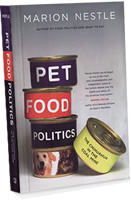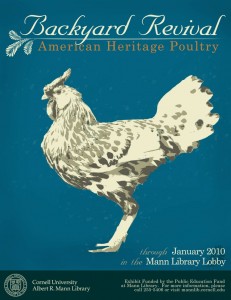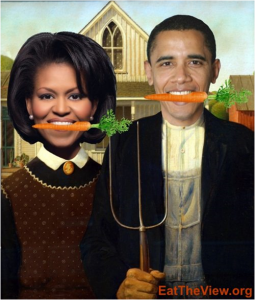Summary
 Pet Food Politics is an account of the pet food recalls of 2007 and their implications for the health of dogs and cats, but also for the FDA, food safety policy in the United States and China, international food trade, and the pet food industry itself. What started out as a few cats sick with kidney disease ended up as an international food safety scandal. The book traces the origins of the scandal back to China, where pressures to produce food ingredients at the lowest possible cost led unscrupulous manufacturers to add an industrial chemical, melamine, to wheat flour and sell it under the guise of wheat gluten or rice protein concentrate ingredients in pet foods.
Pet Food Politics is an account of the pet food recalls of 2007 and their implications for the health of dogs and cats, but also for the FDA, food safety policy in the United States and China, international food trade, and the pet food industry itself. What started out as a few cats sick with kidney disease ended up as an international food safety scandal. The book traces the origins of the scandal back to China, where pressures to produce food ingredients at the lowest possible cost led unscrupulous manufacturers to add an industrial chemical, melamine, to wheat flour and sell it under the guise of wheat gluten or rice protein concentrate ingredients in pet foods.
Pet Food Politics provides a timeline of the events and charts of the distribution chain of the tainted ingredients. It describes the 40-year history of the use of melamine as a food adulterant. And it explains how melamine mixed with one of its by-products, cyanuric acid, spontaneously formed crystals that blocked the kidneys of cats and dogs.
Melamine, of course, is the same chemical implicated in the Chinese infant formula scandal of 2008. In that incident, 294,000 infants became ill with kidney disease, and at least eight died. Hence the book’s subtitle: The Chihuahua in the Coal Mine–a warning of flaws in our food safety system.
The story told in Pet Food Politics demonstrates how food for people, farm animals, and pets is really much the same. We only have one food system. A safety problem in any part of it affects food for all. The pet food recalls should have warned us all that the food safety system needed fixing, and right away. The peanut butter recalls of 2009 show what what happens when such warnings go unheeded.
BLURBS
“Marion Nestle has emerged as on of the most sane, knowledgeable, and independent voices in the current debate over the health and safety of the American food system.” –Michael Pollan, author of In Defense of Food and Omnivore’s Dilemma
“Pet Food Politics reads like a detective story in which each new clue points to a greater crime than the one we started out investigating. Marion Nestle makes an overwhelming case for the inadequacy of our present system of monitoring food safety.” –Peter Singer, author of Animal Liberation
“The production of pet food–and its parallels to the manufacturing of human food–should be of concern to everyone, not just those who love animals. In her expert examination of the pet food industry, Dr. Nestle tells a story as compelling as a mystery. You’ll never look at the pet food aisle the same way again–or your own food either.” –Gina Spadafori, Universal Press Syndicate pet care columnist and best-selling pet book author
“Pet Food Politics offers the most detailed account we’ll ever get of the 2007 pet food recalls–even for those of us who closely followed the story. What’s more, Marion Nestle uses the specifics of this event to reveal the inadequacies of the agents and policies that are supposed to safeguard U.S. pet food. While
Pet Food Politics will be fascinating to pet owners, given the myriad connections between the human food and pet food industries, this is an important book for anyone who eats.” –Nancy Kerns, editor,
Whole Dog Journal
“Provocative, well researched, and insightful,
Pet Food Politics is a page-turner and a must-read for people who care as much about the quality and safety of the food in their pets’ bowls as they do about the food on their own plates. This in-depth study reads like a thrilller and will make consumers reconsider trusting the ‘hand’ that feeds them.” –Claudia Kawczynska, editor-in-chief,
The Bark
REVIEWS AND INTERVIEWS
Review of Pet Food Politics among reviews of several books about dogs in the Financial Times (U.K), April 18, 2009: “A serious investigative tome with a faintly ridiculous title.”
Interview with Christie Keith on Pet Hobbyist, February 1, 2009. “Transcript: Dr. Marion Nestle and Dr. Mal Nesheim, Pet Food Politics and What Pets Eat.”
Sacramento Bee, January 20, 2009. Gina Spadafori and Marty Becker: “Bookhounds will love last year’s best.”
Pet Connection, January 10, 2009. Gina Spadafori: “Turning the page: Last year produced some must-read books for pet lovers.”
Pet Connection blog, January 6, 2009. “Pet Food Politics: an interview with Dr. Marion Nestle.”
November 15, 2008 Interview with Evan Kleinman on Good Food, KCRW (Los Angeles) on Pet Food Politics (scroll down to 11:50 a.m.)
October 21, 2008 Interview with Brittney Andres at Mother Jones (audio and print): Pet Food Politics
October 1, 2008 Interview with Eating Well about Pet Food Politics (September/October issue)
<!–[endif]–>September 30 Marshal Zeringue posts page 99 of Pet Food Politics on his Page 99 Test site. “Open the book to page ninety-nine and read, and the quality of the whole will be revealed to you.” –Ford Madox Ford
September 30 Interview with Emily Kaiser on Food and Wine “Mouthing Off” blog site about Pet Food Politics
September 28 Interview with Toronto Star on pet foods and foods safety
Review in the Atlantic Monthly, September 29, 2008. Corby Kummer, “Back to The Jungle.”
Interview with Tracie Hotchner on Dog Talk about Pet Food Politics
Interview with Michelle Nijhuis of Grist (Environmental News and Commentary) about Pet Food Politics, 9/19/08.
Miriam Morgan’s review in the San Francisco Chronicle, September 10, 2008. “What’s new? Pet Food Politics a wake-up call.”
Jill Richardson’s review on AlterNet, September 10, 2008. “Pet Food Politics: why our pets still aren’t safe.”
Interview with Jill Richardson at UC Press blog site, September 10, 2008.
Review in The Economist, September 4, 2008. “Why pet-food safety matters, even to people who do not have pets.”
Podcast in The Economist, September 4, 2008.
Interview with University of California Press about Pet Food Politics: The Chihuahua in the Coal Mine (click on arrow under the book cover), June 17, 2008
Interview with Kim Campbell Thornton about Pet Food Politics at PetConnection.Com, March 14, 2008.





